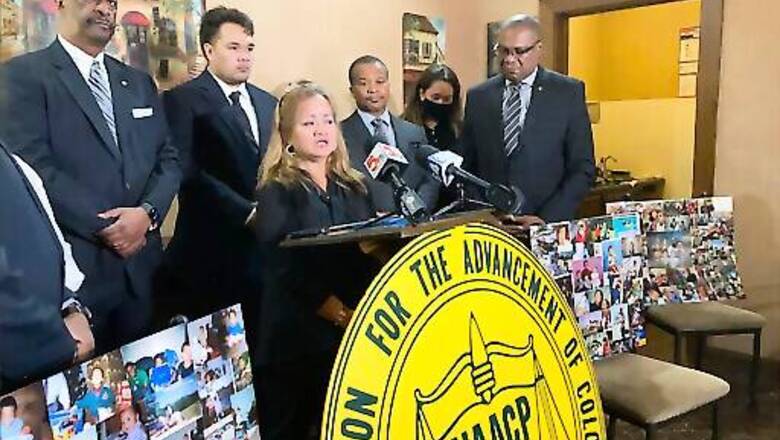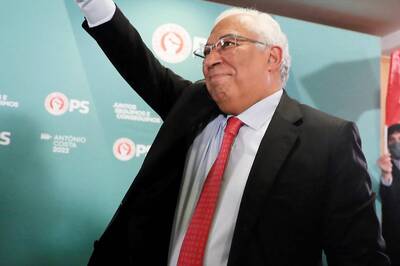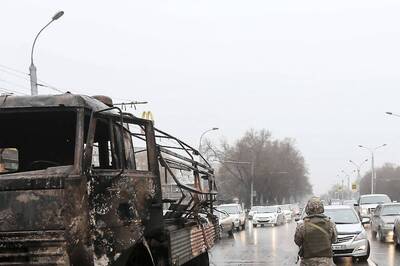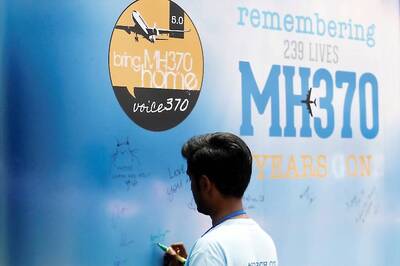
views
SPANISH LAKE, Mo.: A puzzling, broad-daylight shooting at a small-town trailer park is renewing concerns among activists about how justice is doled out when a Black person is killed in Missouri.
A neighbor killed Justin King, 28, on Nov. 3 at the neighbor’s mobile home in Bourbon, a town of 1,600 residents 75 miles (120 kilometers) southwest of St. Louis. While police say the initial investigation indicates the shooting was justified, King’s relatives and civil rights leaders on Thursday pressed for a more thorough probe.
I just think this is a nightmare and I’ll wake up,” King’s mother, Eva Bruns, said at a news conference. He didn’t deserve to die like this.
Racial injustice activists cited other killings of Black men in Missouri that failed to result in criminal charges. Among them: Tory Sanders, who died after a white sheriff pressed a knee to his neck in a manner similar to George Floyd’s 2020 death in Minneapolis; and Derontae Martin, a teenager shot inside the rural home of a man with a history of racist comments.
When it’s a white assailant and a Black victim, it is so hard to get answers, St. Louis activist leader Darryl Gray said. It is hard to get justice.
The Crawford County Sheriffs Department didnt respond to interview requests but said on Facebook that it appears that King was shot and killed after forcing entry into a neighbors residence where an altercation took place. The homeowner stated that he feared for his life and shot King.
But two of King’s neighbors, in phone interviews, questioned the police account. They said King was a friend of the shooter, a white man in his 40s who lived across the street. Breaking into his house, they said, would be out of character for King.
Katie Bosek said that when her car wouldn’t start around 11:30 a.m. Nov. 3, King and the shooter worked together to connect a loose wire and had the car going within minutes.
They were laughing when they walked off,” Bosek said. “They were getting along.
Less than 15 minutes later, I heard three gunshots,” Bosek said. “Bam bam bam! I went outside and Justin was dead.
Lesa Stiller, who manages the trailer park, was outside drinking coffee when she saw King leave the shooter’s property, then turn around and go back. Seconds later, she heard three gunshots and saw King dressed only in pajama bottoms stagger backward, falling against a car. The shooter yelled out for Stiller to call 911.
I said, You shot him! she said. The man didnt respond.
King grew up in St. Louis County. He moved into the trailer about a year ago, to be closer to his young daughter, who lives with her mother in a nearby town, his father, John Alexander King, said.
Stiller called Justin King an amazing person who insisted on hanging her Christmas lights so she wouldnt risk a fall. Bosek said King helped find her dogs after they got loose the morning of his death.
Missouris castle doctrine law allows for deadly force against intruders. Peter Joy, a professor at the Washington University School of Law in St. Louis, said the law requires the homeowner to act in a reasonable way.
Prosecutors have discretion, Joy said. If the police report says the individual who was killed was trying to break into the house, even if they know each other, that might be considered reasonable.”
Activists believe the criminal justice system also failed Martin and Sanders.
Martin, 19, was among several young people at a party near Fredericktown in April when he was felled by a single gunshot. Investigators determined Martin killed himself, but a subsequent coroner’s inquest jury found he died by violence, not suicide.
One witness said at the coroner’s inquest in July that the homeowner told him he killed Martin, saying, he didn’t like Black people. But another witness said he saw Martin shoot himself.
The homeowner, on Facebook, has mocked foreign accents and defended the Confederate flag. He testified he was on the main floor of his house when the gunshot rang out. Some of the young people, in testimony, backed up his account.
As for Sanders’ death, Missouri Attorney General Eric Schmitt announced in February that no charges would be filed. The 28-year-old Black man from Nashville was driving through southern Missouri in 2017 when he went to police in Charleston saying he needed psychiatric help. Hours later, as police held him while waiting to get him to a mental health facility, he created a disturbance, prompting then-Mississippi County Sheriff Cory Hutcheson to lead a team of officers into the cell.
A lawsuit filed by Sanders’ family said Hutcheson kept his knee on Sanders’ neck for up to three minutes, even as a police officer urged him to stop.
Sanders death was pivotal in the Missouri NAACP chapter’s 2017 decision to issue travel advisory warning people that civil rights wont be respected in Missouri. The advisory remains in effect.
The chapter’s president, Nimrod Chapel Jr., said the criminal justice system in Missouri creates ridiculous excuses for murder when a Black man is the victim.
This is part of Missouris legacy, Chapel said.
Disclaimer: This post has been auto-published from an agency feed without any modifications to the text and has not been reviewed by an editor
Read all the Latest News here




















Comments
0 comment